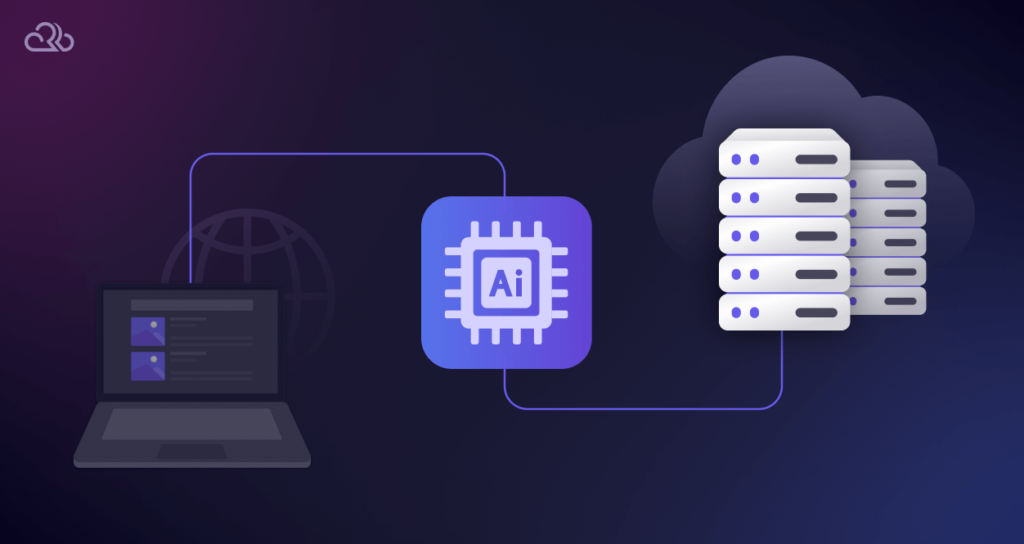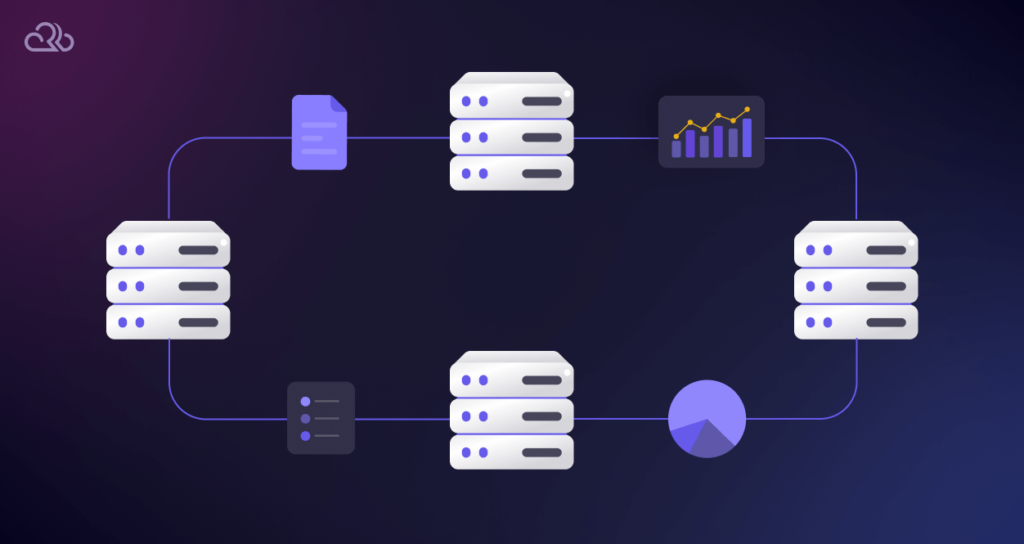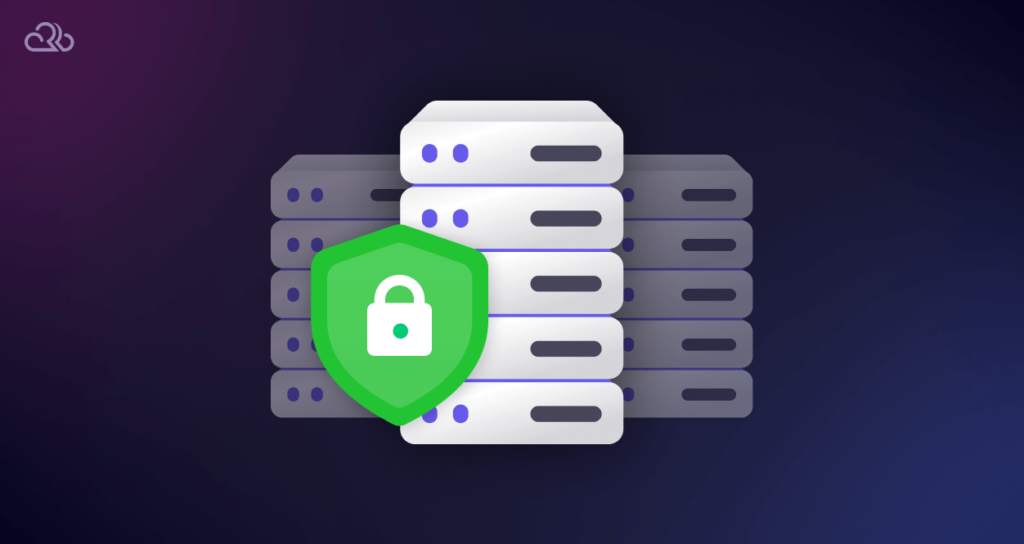The digital landscape is constantly changing, and with it, the very foundation upon which our online experiences are built: web hosting.
As 2025 is just around the corner, the demands on hosting infrastructure are evolving at an unprecedented pace, driven by emerging technologies, shifting user expectations, and a growing emphasis on sustainability.
Simply maintaining the status quo is no longer an option; businesses must adapt to innovation or get ready to be eliminated from the competition.
This isn’t just about faster loading times; it’s about harnessing the power of cutting-edge hosting solutions to unlock new possibilities for growth, engagement, and operational efficiency.
This exploration of web hosting trends offers crucial and actionable insights into the technologies that will define the future of online presence.
From the rise of AI-powered performance to the inevitable green hosting and serverless architectures, let’s explore what web hosting trends 2025 brings for us.
Trend #1: AI-Powered Solutions

Just like AI was part of web hosting market trends in 2024, the trend will not only continue but also exceed adoption rates in 2025. This means that hosting service providers will be switching to AI and automation to better serve their customers.
Impact: AI will improve efficiency by predicting the maintenance of servers, thereby directly reducing downtime. This will lead to a reliable hosting service whilst maintaining lower costs at the same time. The automated customer support will enable customers to find the solution to their problems using a chatbot that directs them to the video and/or an article in the knowledge base.
Trend #2: Green Hosting Will Gain Momentum
According to a Harvard Business Review, training just one single Large Language Model (LLM) of AI requires thousands of megawatts of hours of electricity. This carbon footprint is estimated to be the equivalent of several hundred American households in a year. Plus, it can also lead to the evaporation of fresh water, most of which is needed to keep the equipment cool.
These environmental concerns are driving innovation among web hosting companies to look for alternatives and reduce their carbon footprint, hence the need for eco-friendly solutions.
Impact: In web hosting trends 2025, it is estimated that a number of hosting solutions will shift to renewable energy sources like solar and wind to lower costs. optimize server efficiency, and minimize waste. A direct impact of this decision is most likely to result in the conservation of freshwater.
Trend #3: Increased Adoption of Cloud Hosting

For a typical website, shared hosting has sufficient resources to work fine with minimum downtime. However, for a dynamic website with an increasing amount of traffic, shared servers just cannot cope.
Impact: Cloud hosting solutions are highly scalable, allowing website owners to adjust server usage as their website grows in numbers. This means that even during peak holiday seasons, websites will not face downtime or speed issues. Businesses will be adopting hybrid and multi-cloud strategies, and web hosting companies need to adjust to this trend. Rapyd Cloud offers the most affordable and unbeaten cloud hosting services that scale with you!
Trend #4: Managed WordPress Hosting for Everyone
Up till now, managed WordPress hosting was considered a luxury reserved only for those who could afford it. In 2025 web hosting trends, we can witness the surge in WordPress Managed Hosting, making it easy and affordable for technical and non-technical WP enthusiasts to get the most out of their investments. Regular updates and bug fixes are critical to ensure optimum performance for a WP website.
Powering more than 40% of the web, WordPress is the king of CMS. Managed WordPress hosting takes care of security, regular backups, and critical security vulnerabilities. 2025 will see the improved sophistication of these services with better performance and higher adoption rates by consumers who will be increasingly looking for reliable hosting solutions for their complex WP websites.
Impact: With all of the technical aspects taken care of by the hosting company, businesses will only need to focus on their content and marketing, leading to cost savings in the long run. This also eliminates the need to hire an expert team of WP developers in-house as the hosting team manages everything, and hence named “Managed WordPress hosting.”
Our experts at Rapyd Cloud’s Managed WordPress Hosting ensure regular backups, site configurations, periodic server maintenance, and a distributed network of cloud servers to manage your traffic. Businesses will also see a reduction in the time spent resolving website server queries in 2025.
Trend #5: Decentralized Hosting for Enhanced Privacy Measures

2025 and beyond will see a dramatic shift toward decentralized hosting. Instead of hosting all files on one server, web hosting platforms will leverage the power of blockchain technology to distribute data across a network of nodes.
Impact: By distributing data across a network of nodes, businesses will witness improvements in security, privacy, and reduced vulnerability to censorship. Since there will be no centralized server, the chances of failures drop significantly, with better resilience to security attacks.
It is also important to note that decentralized hosting will take time for mass adoption because it may not serve as an ideal use case for every client.
Despite this, the centralized cloud hosting that we at Rapyd Cloud offer is designed to meet the needs of complex websites and online businesses.
Trend #6: Edge Computing and CDN
Rather than storing in a centralized server, edge computing and CDNs store data closer to the user’s geographical location to load content faster and reduce latency. This will be an important trend to keep an eye out for in 2025 web hosting trends.
Impact: The immediate impact of edge computing is the dramatic reduction of latency and improvement in performance. This benefits not only the end user but also the business in terms of revenue and profitability.
Edge computing and Content Delivery Networks (CDNs) minimize the distance for information to travel between the server and the end user. This leads to not only faster load times, but refined streaming experiences and responsive applications, specifically IoT devices.
In case if one edge server fails, others can seamlessly take over the workload without disrupting the business. By 2025 and beyond, edge computing will become an integral part of the web hosting landscape, making service providers more competitive than others.
Trend #7: Serverless Hosting

Serverless hosting is a type of cloud-hosting model that works as a Function-as-a-Service (Faas). The developers write the code and deploy it in a container without worrying about the server.
The rest is managed by the hosting company, which charges the developers based on resources utilized. Apps built on the serverless infrastructure will scale automatically to accommodate a growing user base.
The servers will often start up, run, and end as and when they are needed without piling up astronomical hosting costs to the client. In 2025 and beyond, serverless architectures will gain momentum because businesses can run and stop the services they need and pay only for the resources they have utilized.
Impact: Serverless architecture allows developers the necessary freedom they need to write and execute code without acquiring a new server.
Businesses can scale with a faster-to-market time, all whilst managing their hosting expenses. By eliminating the need for server maintenance and management, businesses can save up on these costs and focus on revenue growth.
AWS Lambda, Google Cloud, and Microsoft Azure all provide these functionalities.
A real-life example is Netflix harnessing the power of serverless architecture to provide uninterrupted streaming services throughout the world.
Trend #8: Implementation of Zero Trust and Enhanced Cybersecurity Measures

Research indicates that approximately 11.5 cybersecurity attacks occur every minute worldwide. Moreover, 40% of successful cyberattacks result in data breaches.
However, the attack itself is not the sole source of devastation; the ensuing consequences—such as reputational damage, revenue loss, and even bankruptcy—are the most damaging.
Fast-loading sites won’t be the only metric that clients will see in 2025 web hosting trends. In fact, they also want to ensure that the hosting companies will safeguard and protect their data.
In 2025, clients and hosting service providers will focus more on implementing enhanced cybersecurity measures with the implementation of Zero Trust.
Zero Trust is a network security model that hosting companies will implement to prevent unauthorized access to client data by enforcing multiple layers of security. Hosting firms will also implement AI-driven measures such as automated patch management, threat detection, and powerful encryption.
Impact: With hardened network security, implementation of the Zero Trust model, and AI-driven cybersecurity policies in place, businesses will see an uptick in data security, directly impacting their bottom line. Automated malware scans, regular backups, and quick restoration of data in the event of a catastrophe further ensure that clients can trust hosting companies focused on keeping the data safe and secure.
With our cloud hosting plans, you get to have an offsite cybersecurity team working round the clock to keep your data safe. We ensure data confidentiality and business continuity by keeping your data safe and secure from hackers.
Trend #9: Increased Spending in Cloud Hosting
2025 will witness a surge in cloud computing in web hosting trends because of the reliability, scalability, and flexibility of the services, catering to millions of businesses worldwide.
In a 2024 article, Gartner projected that global spending on cloud infrastructure is poised to grow from $561 billion in 2023 to more than $671 billion by the end of 2024. This is a mind-boggling 20.4% increase on a Y-o-Y basis.
But this uptick in investment has many reasons behind it such as higher adoption rates of AI and machine learning, cybersecurity concerns, and a rise in remote working.
A lot of spending has to do with regulatory compliance to protect and safeguard confidential and sensitive data for millions of businesses and their clients. For example, to ensure data confidentiality for European citizens, Europe demands all businesses remain compliant with GDPR. This is why in 2025, investment in cloud computing will likely surge to ensure stringent regulatory compliance.
Also Read: Best Managed Ultimate Member Hosting
Summary of Key Trends for 2025
Every business is unique and so are its requirements. It is imperative that hosting companies keep up with these trends to stay competitive or risk getting eliminated. Hosting companies need to provide quick, reliable, and scalable solutions for their clients to ensure better user experiences.
High-performance secure WordPress hosting like Rapyd Cloud provides you with complete peace of mind knowing that your site can easily scale without draining your budget. The future of web hosting is a lot more than just faster load times, clients also expect to keep their data safe when they choose you as the service provider.
Enhanced website security measures, increased spending in cloud hosting, stringent regulatory compliance, and scalability are all shaping up the hosting landscape in 2025.
Experts predict a rise in cloud adoption, more AI-driven solutions, and enhanced website security.
It is time to keep yourself updated with the web hosting industry trends.
Check out this WordPress hosting performance report, and keep you updated on the performance trend for fast WordPress hosting.
Frequently Asked Questions

What is edge computing, and how does it enhance performance?
Edge computing minimizes the distance it takes for the data to travel between the end user and the server, thereby directly leading to faster load times and improved user experience.
Edge servers work with CDNs, a distributed network of nodes across the globe. If a visitor in France is accessing a website with its server hosted in New York, this would cause delays for the data to load as it has to travel across the continent. With edge computing, a local edge server in London can cache content and handle requests, significantly speeding things up.
Rapyd Cloud’s infrastructure is designed with performance in mind, and leveraging edge computing principles is the key to delivering a consistently fast experience for WordPress sites hosted on our platform.
Is serverless hosting suitable for my WordPress site?
It depends entirely on your needs. A typical WordPress blog or a WooCommerce site may not need serverless hosting. However, if you want to build and deploy custom apps without worrying about hosting them, then this could be a viable option.
How can I ensure my hosting provider is secure?
Always read reviews and inquire from the hosting company about the following security measures:
CDN Support
Firewalls and Intrusion Detection/Prevention Systems (IDS/IPS)
Malware scanning and removal
DDoS protection
Regular security audits and patching
Free SSL certificates
Regular and automatic updates of themes, plugins, and WP versions
Automatic backups and restoration
What is modular hosting, and how can it improve flexibility for developers?
Modular hosting allows developers to select and combine specific services and resources as needed, allowing for greater flexibility and control.
Rapyd Cloud’s platform is built with modularity in mind, allowing us to tailor solutions to specific WordPress needs and provide developers with the flexibility they require.
How does global CDN integration impact user experience and site speed?
A Content Delivery Network (CDN) stores copies of your website’s static content (images, CSS, JavaScript) on servers distributed across various continents in the world. When a user visits your site, the CDN serves the content from the server closest to them, reducing latency and improving loading times.
While this may not be necessary for a website serving its country’s residents, as your site grows, it will only help in improving speed for the international audience. Rapyd Cloud provides CDNs to ensure your website loads fast regardless of your visitors’ geographical locations.
What is the difference between traditional and serverless hosting?
You manage the server, including operating system updates, security patches, and resource allocation. This is the typical and traditional server hosting model, one that incurred enormous costs and human resources.
In serverless hosting, the cloud provider handles all of this. You only focus on your business and leave the rest to your service provider.
What role does AI play in web hosting support and optimization?
AI is transforming web hosting by automating tasks, improving performance, and enhancing security. AI-powered systems can:
Fast customer support turnaround times
Monitor server performance and predict potential issues
Optimize resource allocation
Detecting and mitigating security threats






